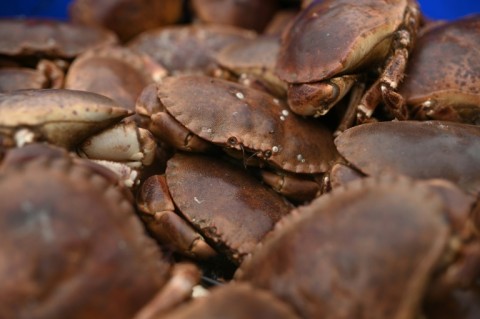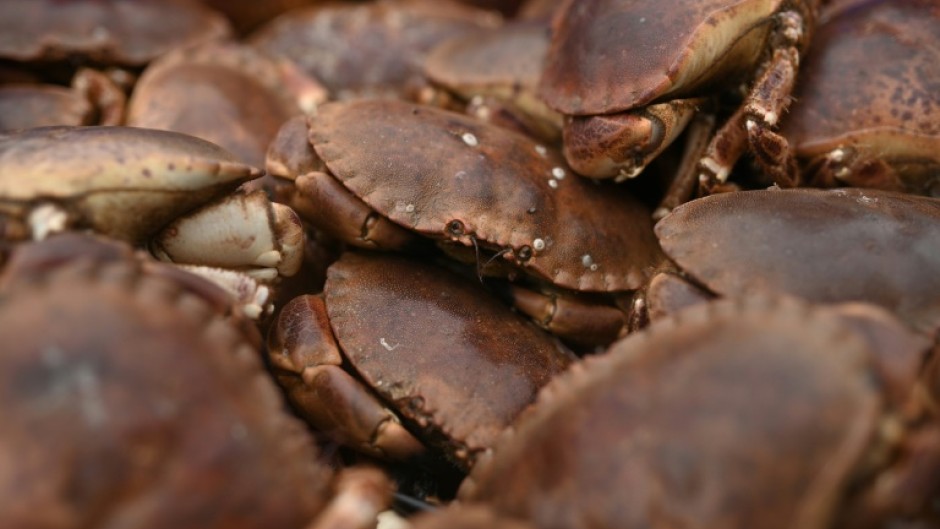
LONDON - What caused the mass death of crustaceans off the coast of northeast England in late 2021? A new finding on Friday brought relief to the government, which is developing a flagship new "freeport" in the region.
The customs-free zone in Teesside is one of several planned that are aimed at showing off Britain's "post-Brexit freedoms" in trade, according to the government.
Some in parliament called this week for dredging at that and other freeport sites to be suspended in case it was the cause of a die-off of crabs, lobsters and other crustaceans from October to December 2021.
A first study by government scientists into the mystery phenomenon blamed a "naturally occurring harmful algal bloom" stretching from the towns of Hartlepool to Whitby.
Then, a study by academics backed by the fishing industry pointed to an industrial pollutant called pyridine, possibly linked to the dredging.
Teesside has historically been associated with heavy industry, particularly chemical plants.
But the latest government-commissioned study by independent experts said it was "as likely as not that a pathogen new to UK waters" was the cause of the deaths, with symptoms such as twitching in dying crustaceans.
"A disease would account for the longer duration of this incidence, the wider geographical spread of the incident, and the twitching of course," one of the experts, Tammy Horton of the National Oceanography Centre, said during a media briefing.
The report found that an algal bloom was unlikely", and it was "very unlikely" that pyridine or another toxic pollutant caused the crab deaths.
Maintenance dredging, required to keep the port open, was also "very unlikely" as the cause, failing to generate enough pyridine or other toxic chemicals to kill the crabs.
"Many of those sediments do contain persistent organic pollutants" from heavy industry in the past, Crispin Halsall, professor of environmental organic chemistry at Lancaster University, told the briefing.
But he emphasised that "There's no evidence that those chemicals will be released at concentrations which are going to cause acute toxicity."
The Conservative elected mayor for Tees Valley, Ben Houchen, welcomed the report, arguing the freeport would bring new jobs to a region blighted by the closure of a former steelworks.
"The wash-up in 2021 was devastating for our fishing community -– one of our proudest industries with some of the most hard-working people on Teesside," he said.
"Their industry has been ruined by a natural disaster and it is now essential (the) government steps up and supports them to recover from the events of October 2021."

